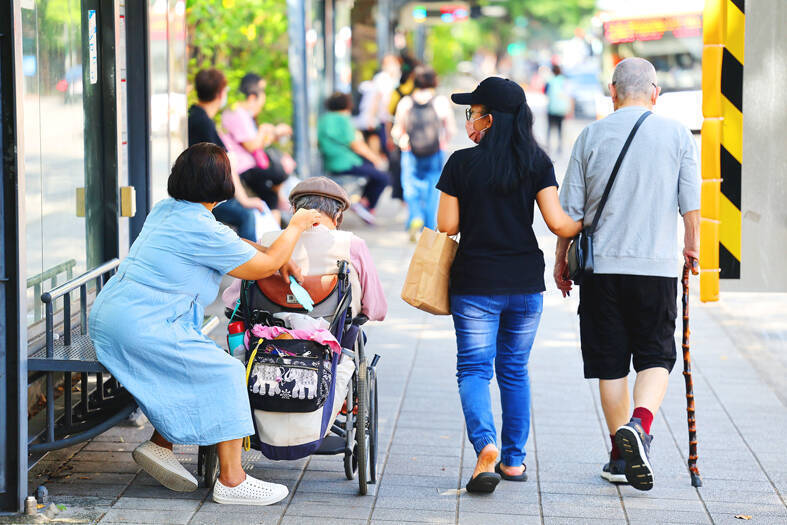《TAIPEI TIMES》Legislators pass bill on Barthel Index waivers

Legislators hold up placards stating their respective stances during a vote at the Legislative Yuan in Taipei yesterday. Photo: Chen Yi-kuan, Taipei Times
LIVE-IN CAREGIVERS:The labor and health ministries expressed concern that the bill could undermine the long-term care system due to a lack of migrant workers
Staff writer, with CNA
The Legislative Yuan yesterday passed an amendment to the Employment Service Act (就業服務法) allowing people aged 80 and older to bypass Barthel Index-based health evaluations.
The revisions to the Employment Service Act also extend the waiver to people aged 70 to 79 with stage two or more advanced cancer.
The Barthel Index is a widely used tool in Taiwan to assess an individual’s ability to perform daily activities in clinical practice and research.
Under the amendment, which passed by 52 to 49 votes, evaluation and determination methods for care recipients with indigenous status would be jointly established by the Ministry of Health and Welfare and the Council of Indigenous Peoples.
The Barthel Index requirement has been waived for specific groups, including those receiving long-term care for at least six consecutive months, individuals with early-stage dementia, and those with severe breathing or swallowing difficulties.
In response to the bill’s passage, the Ministry of Labor and Ministry of Health and Welfare expressed concern that it could undermine the long-term care system. As the main source nations for migrant workers cannot immediately increase the labor supply, and the recruitment, training and introduction process could take several months, the current shortage could be exacerbated, driving up hiring costs.
The amendment could lead to a significant rise in demand for migrant caregivers, as an additional 530,000 Taiwanese would now be eligible to hire live-in caregivers, the labor ministry said in a statement.
Taiwan had approximately 227,000 migrant caregivers as of November last year, with the number growing by about 10,000 per year, according to government data.
However, the labor ministry cautioned that the bill could potentially make it more challenging for critically ill families to hire or retain migrant caregivers, limiting their access to care.
The health ministry said that as about 60 percent of people older than 80 in Taiwan are not disabled, round-the-clock care could speed up their physical decline, and place additional strain on the healthcare and caregiving system.
The Chinese Nationalist Party (KMT) said that the current policy does not take account of unexpected situations, and with a declining birthrate, the amendment would also help alleviate the burden on younger families.
Meanwhile, amendments to the Spatial Planning Act (國土計畫法) also passed yesterday that extended the period to draw zoning maps by six years.
According to Article 45 of the act, the competent authorities must complete their maps within four years after the act goes into effect, or by April 30.
Once the maps are complete, the Regional Plan Act (區域計畫法) would no longer be valid and the Spatial Planning Act would be fully implemented.
However, all three parties proposed lengthening the timeline, voting to extend the original four-year timeline by another six years.
新聞來源:TAIPEI TIMES

People walk past a caregiver accompanying an elderly person in Taipei’s Zhongzheng District on Sept. 12, 2024. Photo: CNA












